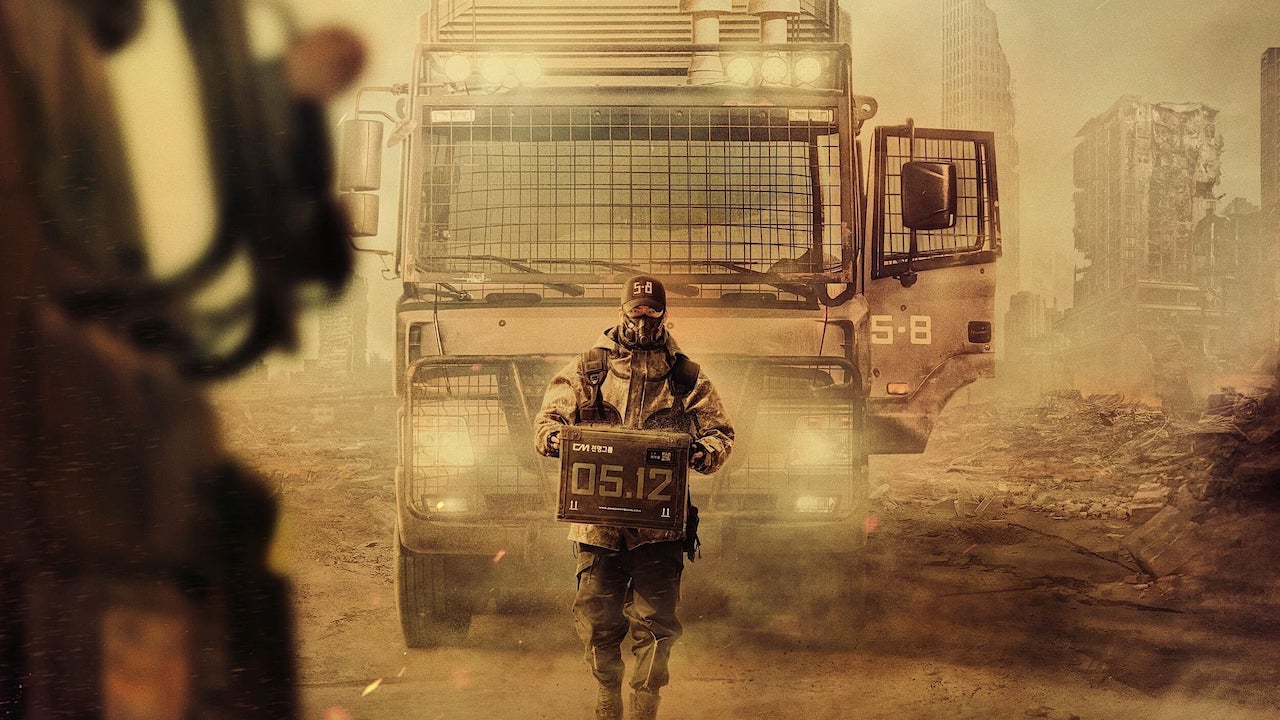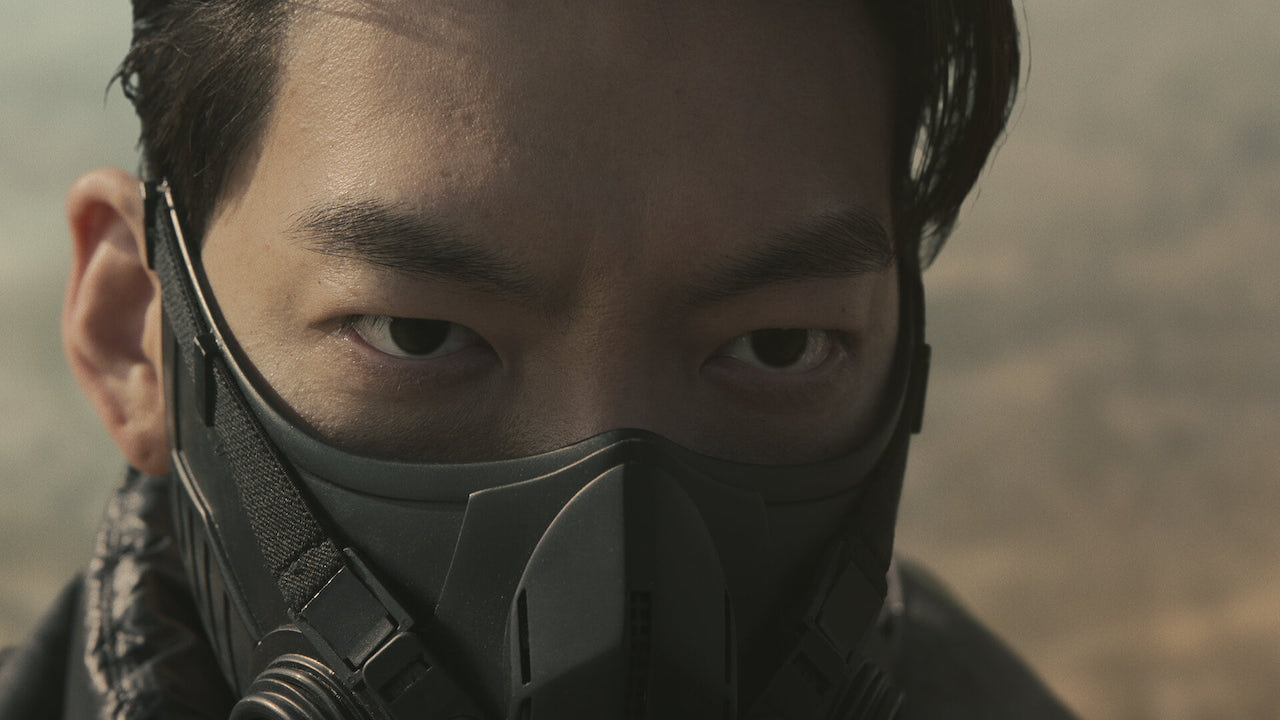The Mad Maxian world of Black Knight turns delivery people into badass heroes

The humble delivery person becomes a post-apocalyptic hero in Netflix’s popular new series Black Knight. Here’s Luke Buckmaster’s review.
Right now, somewhere in the world, a delivery person who treats their job very seriously is watching Netflix and thinking: finally, a show about me. That show is the South Korean series Black Knight, which, based in a Mad Maxian hellhole of a future, dust-caked and violence-ravaged, might not be about their daily grind in the strictest sense. But let’s not split hairs. The point is that the show’s heroes are delivery people, who battle the elements and combat various marauding fiends in order to bring their packages to the correct recipients on time. The hero, named 5-8 (Kim Woo-bin), declares in the second episode that “timeliness is everything to us,” which is the kind of professionalism one hopes for when they’re feeling peckish and order dinner on a food delivery app.
Black Knight is far from great, with its wobbly balance of serviceable action scenes and histrionic drama that comes across almost desperate—important moments scripted in highlighter pen and brought to life with unsubtle acting. But it does have an appealing junkiness: like a big, juicy burger you regret eating as soon as you’re done but crave again the next time you’re hungry. There’s something appealing about returning to this woebegone world, circa 2071 and post-comet collision with earth, fracturing society in standard dystopian ways. There are three classes/zones (“general,” “specific” and “core”) and all people living inside them are branded with a QR code.
There are the haves, the have-nots, and the totally screwed. They are, respectively, those who live in spiffy domed disclosures; those who live in drab concrete houses of the same design, copy and pasted across the desert; and “refugees” forced to suck it up, oxygen-deprived and forever hungry. 5-8 is a legendary deliveryman and former refugee who’s conquered class divides but has grander aspirations, dangerous to the powers that be. He inspires plenty of people including teen refugee Sa-wol (Kang You-seok), whose efforts to join the delivery person fold involve tournament-like activities. A levelling-up training montage involves, for reasons nebulously defined at best, whacking a series of balls shot at him with a portable cannon.
This is one of many examples of the show snacking on heavily codified genre elements, under the umbrella narrative of a hero rising up to disrupt the status quo. In the first episode we visit the sleek-looking upper echelons of power, where Madame President (Jin Kyung) discusses how the population in the “special district” is “out of control,” the people there suffering “depression and panic disorders,” because life in general is a bit shit. She canvasses plans to move people into a new district, which 5-8 starts investigating. We learn in this early scene that, 40 years ago, a city was created five kilometres under the ground. But has Madame President watched Silo? The huge underground structure in that (far superior) series is much more impressive and even features a lovely spiralling staircase.
One of Black Knight’s biggest problems is that none of the characters are particularly interesting, feeling more like narrative functions than individual personalities. Old mate 5-8 is a cardboard reprint of the lone hero, sans the devil-may-care stoicism of a Max Rockatansky or The Man with No Name. Kim Woo-bin has a more smouldering style, which might have something to do with his past as a runway model. He knows how to mould his face into a frozen, obstinate glare, but 5-8 is vaguely defined ideologically. Is he Robin Hood-esque, passionate about fighting inequality? Or more like Tyler Durden or V, wanting to burn the system to the ground?

The show’s distractible qualities work for and against it. The plotting feels scrambled and piecemeal, struggling to find compelling access points. On the other hand, the pace is decent and it chews through familiar-feeling scenarios in dimly amusing ways. I appreciated that we never have to wait too long until the next silly set piece. I appreciated, also, the show’s devotion to capturing the goodness, the strength, the valour, the sheer courage of delivery people, so long taken for granted in our gimme-gimme-gimme, now-now-now modern world. In this society they are the very picture of decency.
After completing all the first season, I wondered what was next: a big budget movie or TV show casting a tradie, a humble plumber perhaps, as the saviour of the world? Ridiculous. It could never happen. Right?


















